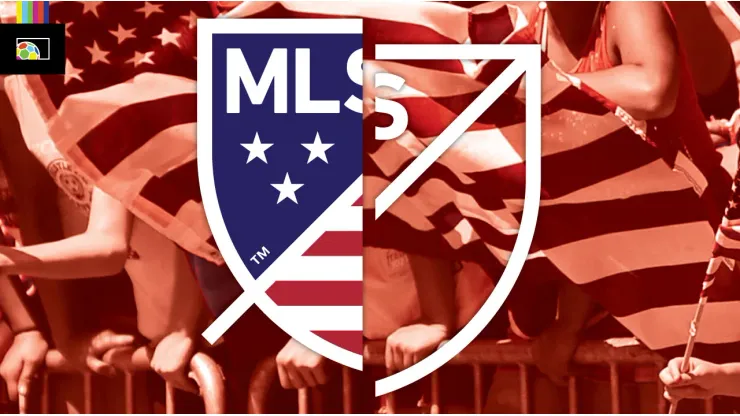
When one thinks about the stars of American men’s soccer, they do not look to Major League Soccer, or MLS. Christian Pulisic is unequivocally ‘Captain America,’ but he plies his trade with Milan in Italy. Weston McKennie, Tim Weah, and Yunus Musah join Pulisic in Serie A. Then, a slew of players who are the stars of the squad find themselves in the Premier League, Eredivisie, and Bundesliga.
Only a handful of the starters for the best USMNT XI come from Major League Soccer. Miles Robinson and Walker Zimmerman are two regular starters for the side who play in MLS. There is a case for Jesus Ferreira, Jordan Morris, or Kellyn Acosta to be in the conversation as USMNT starters. Still, these players are not the elites of US Soccer. MLS does not have a bonafide American talent to prop up above all else like it would if one of those European talents was in the league.
It can be hard for anyone to outwardly name any of those candidates to be the biggest American soccer stars in MLS. Those that emerge on that list serve a role. They defend, like Robinson or Zimmerman, which is not a glamorous position. Or, they are stagnant players in the sense that they do not provide that wow factor. Certainly, any good team needs players like this. These players can be a challenge to promote to bring more fans into MLS. For example, N’golo Kante was arguably the best player in the Premier League in the late 2010s, and even he struggled to be the impetus for fandom.
Lack of development hindering American stars in MLS
For Major League Soccer, this traces back to an issue of development, particularly in creative positions. MLS does not put enough emphasis on this area of training. Then, any time a player does show immense promise in this department, the club is willing to sell them to Europe. Then, it replaces them with talented, but not American, players in creative positions.
Major League Soccer clubs produced several of those great players that are currently in Europe. Gio Reyna spent four years in the New York City FC academy. Tyler Adams is a product of the New York Red Bulls academy. Red Bull’s multi-club ownership helped Adams spring a move to Europe. Weston McKennie was in the FC Dallas youth setup for seven years before Schalke helped turn him professional. Brenden Aaronson came through the Philadelphia Union Academy. He made his debut with Philadelphia before switching to RB Salzburg.
Combined, those players made 110 appearances in Major League Soccer before European clubs came calling.
“If I think about the top leagues in the world, I think about the Bundesliga,” Adams said before his move to RB Leipzig from the New York Red Bulls. “A lot of youngsters have made the next step in their development here.”
Adams wanted to continue his development in the Bundesliga because the training was better there. To be fair to MLS, the Bundesliga’s history dates well before MLS started. No MLS club can rival the spending on training facilities of clubs in the Bundesliga either. That comes with time and growth. However, growth is the product of fans. Americans have a diluted product of sport available throughout the year. MLS has committed supporters, but some of these young talents want to be in the spotlight early on.
“Soccer, it’s just this way of life in other countries,” Pulisic wrote in the Players’ Tribune in 2017. “It’s part of the fabric of who they are, and of what they do. There’s this sense of identity that I think is baked into global soccer – that touches everyone, and connects everyone together.”
National stars are crucial to the league
If Major League Soccer had that international star to revert to, the benefits would draw in more fans to the league. This is not up to US Soccer and the United States Men’s National Team. Rightfully, the side should always pick its best XI or its best squad. Yet, in the modern scene, all of those players come from Europe.
Therefore, it comes down to the domestic programs to produce better talent. College soccer can be a chance to develop talent, even if players are only there for at most four years. Yet, even that scene has ample international players. For example, the 2023 MLS SuperDraft brings in the best players from college in a traditional American sports draft. The top five picks in the draft featured four players born in Africa and another born in Canada.
That said, the sixth player taken was Duncan McGuire. The American had a breakout campaign with Orlando City scoring 13 goals in 29 league games. MLS took the opportunity to share many of those goals. Yet, it cannot crack a stronger national audience until McGuire breaks through with the national team.
The younger generation of American stars remains the key to helping Major League Soccer. If it can retain some of the talent that is helping lead a new era of the USMNT, more fans will want to track how well they do in MLS.
PHOTOS: IMAGO
Guide to Major League Soccer
200+ Channels & Local Sports
- Price: Plans starting at $14.99/mo (Latino)
- Watch Ligue 1, Copa Libertadores & World Cup Qualifiers
Every MLS Match in One Place
- Price: $12.99/mo (Now included with standard subscription)
- Watch every MLS regular season game, Playoffs & Leagues Cup
Many Sports & ESPN Originals
- Price: $11.99/mo (or ESPN Unlimited for $29.99/mo)
- Features LaLiga, Bundesliga, FA Cup & NWSL
2,000+ Soccer Games Per Year
- Price: Starting at $8.99/mo
- Features Champions League, Serie A & Europa League
Home of the Premier League
- Price: Starting at $10.99/mo
- 175+ Exclusive EPL matches per season